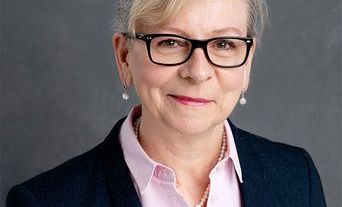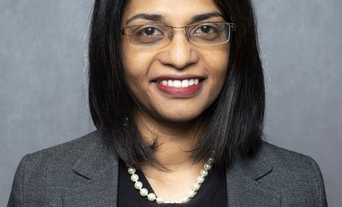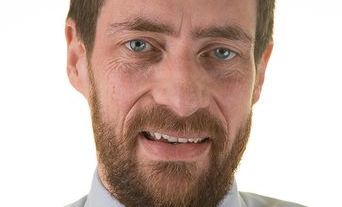He has since taken up posts with the Institute of Cancer Research and the University College London Hospitals, as well as supporting the College in a variety of committees and public engagement activities. In his profile, he highlights his achievements in oncological research and gives advice for new trainees entering the field.
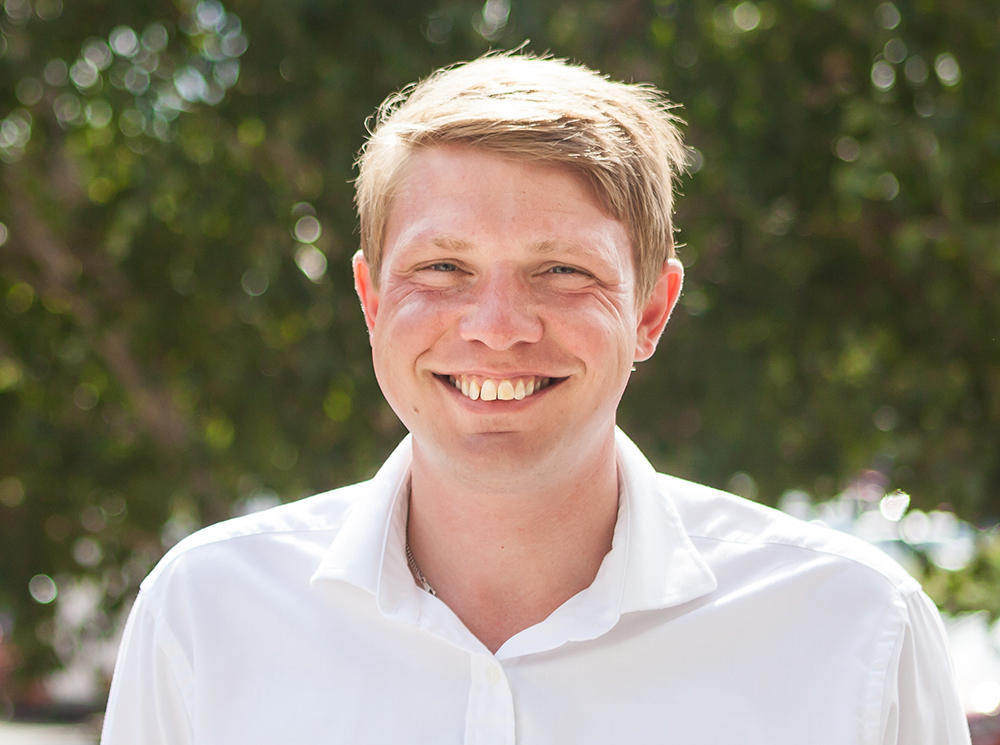
Background
I am the eldest of three brothers and grew up in the countryside village of Stutton in Suffolk. My father was a vet and my mother was a veterinary nurse who also worked with people with learning difficulties and disabilities. I originally wanted to become a vet, but I did not achieve the A levels needed so I undertook a BSc in Zoology at the University of Liverpool in 2004. After a gap year I studied at Keele Medical School where I thoroughly enjoyed all the specialties but then decided to pursue a career in surgery after graduation.
My whole perspective changed after a four-month FY2 post in histopathology with Dr Mark Stephens. I absolutely loved it! I initially started on core surgical training in London, but then reapplied to enter histopathology training and did not look back. I took the opportunity to do the BRC Molecular Pathology Starter Programme at the Institute of Cancer Research (ICR), which led to the completion of a PhD in the molecular pathology of infant gliomas under the supervision of Professor Chris Jones. It also led me to apply for diagnostic neuropathology training and to also successfully apply for an academic clinical lecturer post with my time split between the ICR and UCLH.
I am regularly contacted by oncologists from around the world and it is a pleasure to hear about the positive outcomes for these brave little children and be able to offer advice about any new diagnoses. It encourages me to continue pursuing research as part of my career.
Key achievements
Advances in oncology
One of my proudest achievements was studying for my PhD on the molecular pathology of infant gliomas. As a result of this work, we were able to classify and characterise a new group of brain tumours occurring within the infant population and identified a single translocation in either the ROS1/NTRK/MET/ALK genes driving the tumour, which was targetable. This work resulted in a first-author publication in the journal Cancer Discovery with numerous opportunities to present my work at national and international meetings. I was awarded the RCPath Trainee Research Gold Medal. It also has resulted in the implementation of a clinical trial and the inclusion of a new chapter in the new 2021 edition of the WHO classification.
I am regularly contacted by oncologists from around the world and it is a pleasure to hear about the positive outcomes for these brave little children and be able to offer advice about any new diagnoses. It encourages me to continue pursuing research as part of my career.
College Trainees’ Advisory Committee
I have been involved in the College’s Trainees’ Advisory Committee (TAC) for many years before taking on the role of chair. This has been a very challenging role but I have enjoyed it immensely and learned so much. We have achieved a great deal including improving communication channels between the College and trainees, implementing an ongoing anti-bullying and harassment campaign, encouraging discussions about learning from errors and mistakes in pathology, and supporting patient safety awareness. I have also supported the Pathology Summer School, co-organised the RCPath/BDIAP Foundation and Undergraduate Taster events and have led a collaborative survey of the trainee body assessing the impact of COVID-19 on pathology training. I was also fortunate to be able to interview Professor Sir James Underwood about histopathology's past, present and future, which has been used as an engagement resource by the College. I am a member of the Diversity Network, the Digital Pathology Committee and the Neuropathology Specialty Advisory Committee. I am also an Operational Delivery Trainee as part of the Pathology Portal Project Board, where I support the creation of digital neuropathology learning material for the platform.
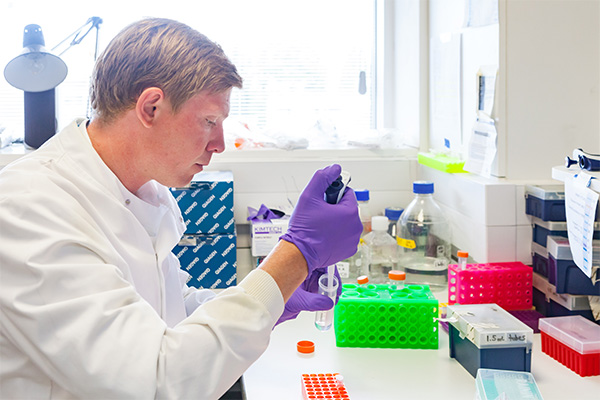
The pandemic has presented a lot of challenges for trainees and I am proud of how the TAC has worked with the College to help support trainees through the provision of coaching sessions, ‘drop-in’ services, helping to re-start the examinations, and distributing useful training-related information via the trainee aspect of the website. I was also a member of the team that was redeployed as a Deputy Mortuary Manager to help set up and work in the mortuary of the NHS Nightingale Hospital, working with Professor Mike Osborn. I was proud to be awarded the President’s Trainee Award from Professor Jo Martin in 2020.
Promoting pathology
I was very touched to be nominated for and then included on the Pathology Power List 2021 and being recognised among so many eminent members of the pathology workforce. I was very proud to give a talk on ‘Provisioning for the future of pathology’, which several members of my family were able to see – the very first time they have been able to see me give a talk.
The pandemic has presented a lot of challenges for trainees and I am proud of how the TAC has worked with the College to help support trainees...
I have been continually involved with public engagement work, including science speak-easy talks, careers talks, ICR Discovery Clubs, and events for local schools and colleges. I am a founding member of the faculty for Path to Success and was awarded both the College’s Furness Prize for Science and Communication in 2020 and the ICR Public Engager of the Year award.
As Trainee Councillor for the British Division of the International Academy of Pathology (BDIAP), I helped to create the foundation membership for junior doctors who want to explore careers in histopathology. I am now the Deputy Meetings Secretary of the BDIAP, where I oversee the organisation of the Molecular Pathology and Approach to Cut-up study days.
I am the ACP Trainee Communications Officer as part of the Trainee Members Groups and I was Assistant Editor of ACP News where I regularly contribute articles about pertinent issues or discussions, and I have recently taken over the role of Editor.
Key challenges for pathology
Investing in the specialty
The COVID-19 pandemic has had a huge impact on pathology departments, trainers and trainees. It has disrupted training and examination schedules for many across the pathology specialties, causing significant interruption of trainee progress and study time. It has also highlighted the lack of digital resources across pathology departments. Trainees are the capital of the specialty and the future of pathology. Investment is needed to help reboot training and ensure that the resources needed are available. This includes supporting the digital transition of pathology departments across the UK and supporting the continual investment in such beneficial projects as the Pathology Portal digital learning platform.
I was diagnosed as a type 1 insulin-dependent diabetic at the age of four. I have never let this hold me back ... I hope that this can inspire others...
Supporting our workforce
Wellbeing issues are also a significant concern; we need to make sure that every member of our workforce feels supported. Coaching and reflective practice sessions have been immensely beneficial to me and such resources should be widely available. Without a happy and healthy workforce, we will lose valued members of our specialty.
We should welcome diversity in our workforce, committees and institutions, embracing difference as an opportunity for positive change and encouraging different perspectives to be considered.
For any trainee considering ... a career in pathology, you would be hard pressed to find a more cutting-edge and rapidly changing specialty. Pathology is constantly adapting and developing to meet the needs of our patients...
Inspiring trainees
For any trainee considering entering a career in pathology, you would be hard pressed to find a more cutting-edge and rapidly changing specialty. Pathology is constantly adapting and developing to meet the needs of our patients according to the latest academic research. It is a fascinating specialty that never ceases to astound and amaze me. You are effectively working as a medical detective, looking at the evidence and bringing all the jigsaw pieces together across different specialties to ensure an accurate diagnosis for the patient and subsequently recommending the best course of treatment and management with ongoing learning throughout your career. There are so many opportunities to get involved with teaching and research. With the continual advances in molecular pathology, digital pathology, artificial intelligence and others, it certainly is a very exciting time to be in pathology.
Work–life balance
Maintaining a work–life balance has always been a struggle for me. However, I have been able to address this problem as a result of some coaching sessions kindly provided by Sarah Gornall and reflective practice sessions with Dr Bridget Wilkins. I find working with my ‘inner critic’ very helpful.
Your inner critic is often one of the characters that can put unnecessary pressure on you by being overly critical. Changing this relationship to a more collaborative mentality has changed my perspective on how I approach my daily tasks and helps me keep optimistic.

Living with diabetes, my constant companion
I was diagnosed as a type 1 insulin-dependent diabetic at the age of four. This has presented another unseen challenge to my daily work. I have never let this hold me back or prevent me making the most of an opportunity. I hope that this can inspire others and any parents who have a newly diagnosed child with diabetes. You can still live a normal and happy life with the condition. I view it as my constant companion, rather than an obstacle to my progress.
There are many people who have provided immense support throughout my career and I would like to thank you all. If I can be half as inspirational as you all have been to me, I will be a very happy pathologist.


